Here are some pictures of the sword:
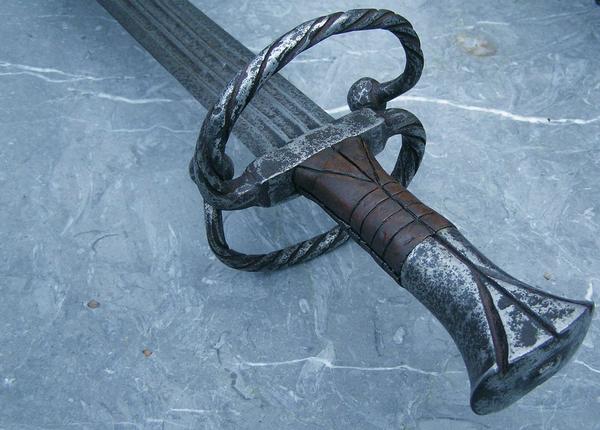

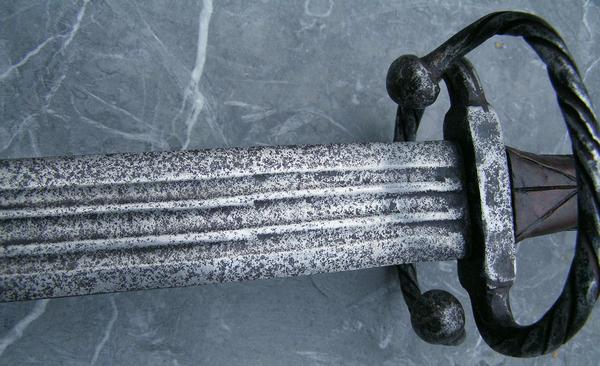
[ Download ]
[ Download ]



| Peter Johnsson wrote: |
| To me it looks victorian or most probably even more recent manufacture. To venture a guess, I would say it is about 3-5 years old at most. |
| Ian Hutchison wrote: |
| DISCLAIMER: I don't know anything about katzbalgers.
That said, I think I've seen a very similar sword before. EDIT: Looks a bit like this sword from a known Czech maker. Aged and with a new grip of course. Blade with three fullers, three groove pommel. The pommel is a little different but these are made by hand and that could just be a result of different production runs. Cross guard is nearly identical and not just for the type but on a sword-to-sword comparison. [ Linked Image ] [ Linked Image ] |
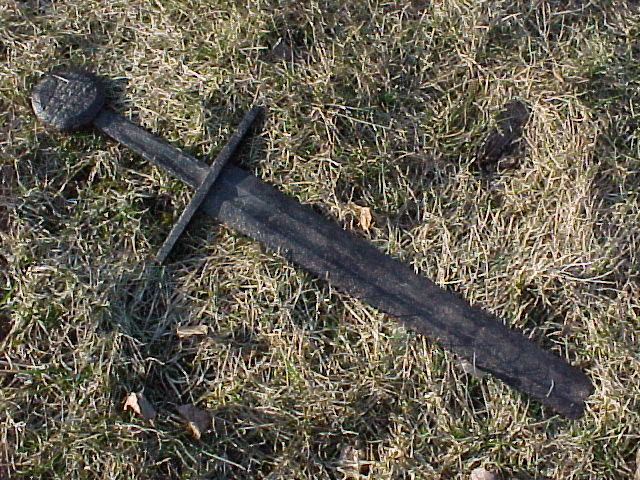
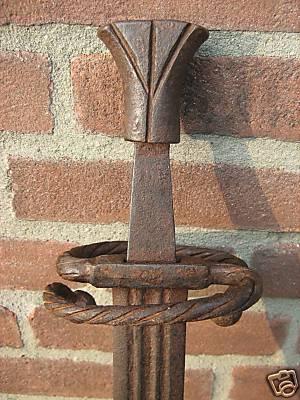
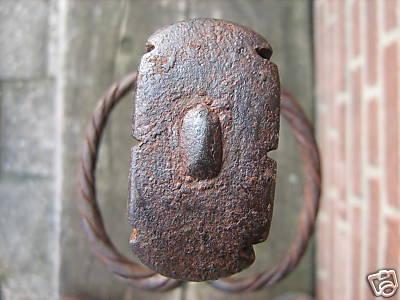
| Leo R. wrote: |
| It was heavily corroded and cleaned by a professional archaeologist who was sure the corrosion was certainly old. |
| Craig Johnson wrote: |
| Thank you for the pictures before it was cleaned. I am afraid this only makes it look a bit more like a modern piece as the corrosion is very red and looks like it is dusty. (the rust comes off in a smooth dust when rubbed)
I think Ian has found your source. If you send a pic of your sword to them my bet is they will tell you when they made it. The details seem to be even more modern when you see the tang that is under the grip. Another telling factor, is the pommel solid? If so it favors the modern date. Often these style of sword had hollow pommels in period. Best Craig |
| David McElrea wrote: |
| Leo,
You know who Peter Johnsson and Craig Johnson are, right? I'm not saying you shouldn't pursue every avenue in trying to be sure of the dating, but you've just been answered by two men whose knowledge of swords is probably unsurpassed today. Not to discourage; rather to encourage. You're getting some heavy duty feedback. |
| Craig Johnson wrote: |
| Hi Leo
Thank you for the pommel picture. If my interpretation of the picture is correct it appears that the whole in the base of the pommel is just wide enough for the tang to fit tightly across its width. The space seems to be on each side of its thickness. Do you remember if it is a round whole? The sides of the pommel look to have a good amount of thickness and I suspect the whole was drilled or possibly milled into the base. The original pommels I have seen for this type of piece (the tall wide oval flair of katsbalgers and some messers that are not scale pommels) have a tendency to be much thinner walled around the lower edge. Some of the shorter ones are literally just sheet metal caps. If the end of the grip is going to be inset in a pommel it is usually a much larger area than the whole I am seeing on your pommel. Best Craig |